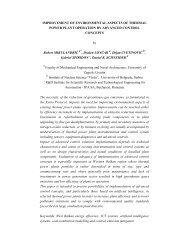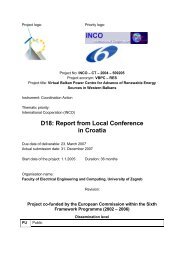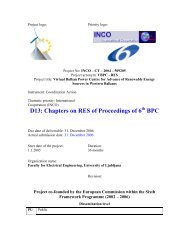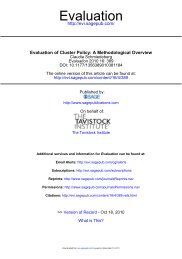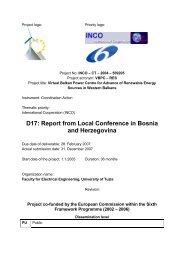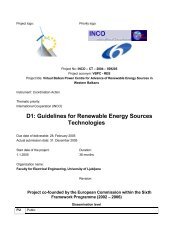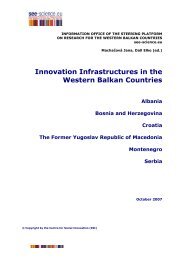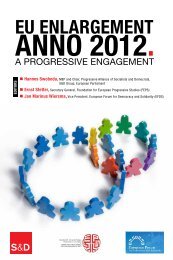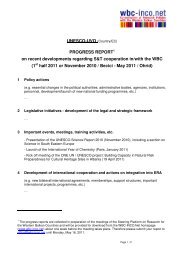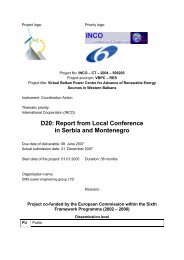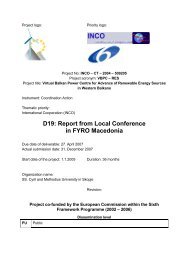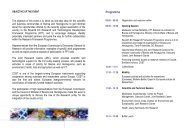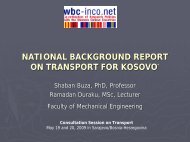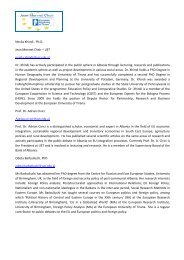Regional Balkans Infrastructure Study Transport - WBC-INCO Net
Regional Balkans Infrastructure Study Transport - WBC-INCO Net
Regional Balkans Infrastructure Study Transport - WBC-INCO Net
You also want an ePaper? Increase the reach of your titles
YUMPU automatically turns print PDFs into web optimized ePapers that Google loves.
!" # $ $ $%&<br />
Chapter 3 presents the investments which are required to improve and develop<br />
the Core <strong>Net</strong>work, both in the short and the long term. An overview of the total<br />
investment requirements up to year 2015 - if the Core <strong>Net</strong>work is to comply<br />
with normal EU standards - is presented. Investment plans for the short- and<br />
medium term are also proposed. These plans which are one of the main outputs<br />
of the REBIS study, have been developed through a number of stages, including<br />
a comprehensive multi-criteria analysis and the preparation of approximately<br />
20 pre-feasibility studies for selected projects.<br />
Efficiency in the transport systems requires not only the development of transport<br />
infrastructure, but also improvements in transport sector management. In<br />
Chapter 4, some of these issues are analysed - in particular the establishment<br />
of efficient Management Information Systems which are a pre-condition for the<br />
efficient development and maintenance of transport infrastructure. The chapter<br />
also presents an overview of the status of transport sector reform in the region.<br />
In order to ensure sustainability in infrastructure development, proper financing<br />
mechanisms must be established which will also ensure the sufficient maintenance<br />
of investments. Chapter 5 describes two possible options for generation<br />
of funds for the road sector development and maintenance, i.e. road user<br />
charges and BOT.<br />
The railways are facing severe difficulties in the entire region, and in most<br />
countries the situation is aggravating. Chapter 6 presents the present market<br />
and financial situation of the railways and recommends the key measures to be<br />
taken. Similarly, Chapter 7 presents the present - very limited - role of multimodal<br />
transport in the region and the difficulties facing this sector. The recommendations<br />
for the multi-modal transport are closely related to those for railway<br />
transport.<br />
Chapter 8 presents the current status of the River Danube and also presents a<br />
brief study of the Sava River. In Chapter 9, a brief status and outlook for the<br />
ports and airports are presented.<br />
Within the framework of REBIS a regional dialogue was established - in the<br />
form of high-level meetings and seminars - and a framework for the continued<br />
co-operation among the countries to monitor and develop the Core <strong>Net</strong>work<br />
was proposed. This is described in Chapter 10.<br />
In addition to the present English version of the report, translations of the main<br />
report will be made into the local languages of the region.<br />
Although the REBIS project has been carried out in liaison with a wide range<br />
of stakeholders, in particular the national authorities in the region, the conclusions<br />
and recommendations in the present report are prepared by the consultants<br />
and do not necessarily coincide with the views of these stakeholders.<br />
19



